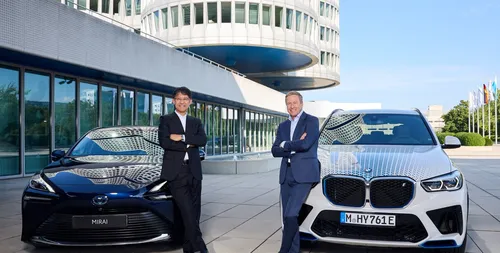Come la partnership idrogeno tra BMW e Toyota sta plasmando il futuro
Toyota e BMW si sono associate per sviluppare veicoli a celle a combustibile idrogeno (HFCV). I vantaggi degli HFCV includono un'autonomia superiore ai 400 km e il rifornimento rapido, simile ai veicoli a benzina. Toyota offre già la Mirai, disponibile in California, mentre BMW sta testando un prototipo di SUV iX5 Hydrogen con l'obiettivo di commercializzare un modello entro il 2028. Entrambe le aziende vedono gli HFCV come una tecnologia complementare agli EV tradizionali, ideale per veicoli pesanti. Lo sviluppo degli HFCV dipende dall'espansione dell'infrastruttura di rifornimento idrogeno e dalla riduzione dei costi di produzione e stoccaggio dell'idrogeno.

Categorie
Ultimi articoli
- Recensione della tastiera meccanica Satechi Keyboard SM3: silenziosa e perfetta per la produttività.
- Questo vecchio telefono si è trasformato in un pericolo di incendio davanti ai miei occhi.
- 10 modi in cui l'app Invitations di Apple differisce da Calendar di Apple
- Apple al lavoro: Il 2025 sarà l'anno in cui Apple rilascerà un concorrente di Google Workspace?
- È improbabile che Apple organizzi un evento speciale per annunciare l'iPhone SE 4.
- Suggerimenti e soluzioni per le connessioni di oggi del NYT dell'8 febbraio (#608)
- Il supporto per Ubuntu 20.04 LTS sta per concludersi.
- Hai un ritardo nella lettura? Lascia che l'IA ti legga ad alta voce.
- Questo è il mio lettore Blu-ray del Santo Graal.
- Nuove produzioni Apple saranno rilasciate la prossima settimana, ecco cosa arriverà.
Tag più recenti
- silenziosa
- meccanica
- smaltimento
- litio
- gonfie
- differenze
- Apple Calendar
- e-mail aziendale
- Google Workspace
- Connessione



